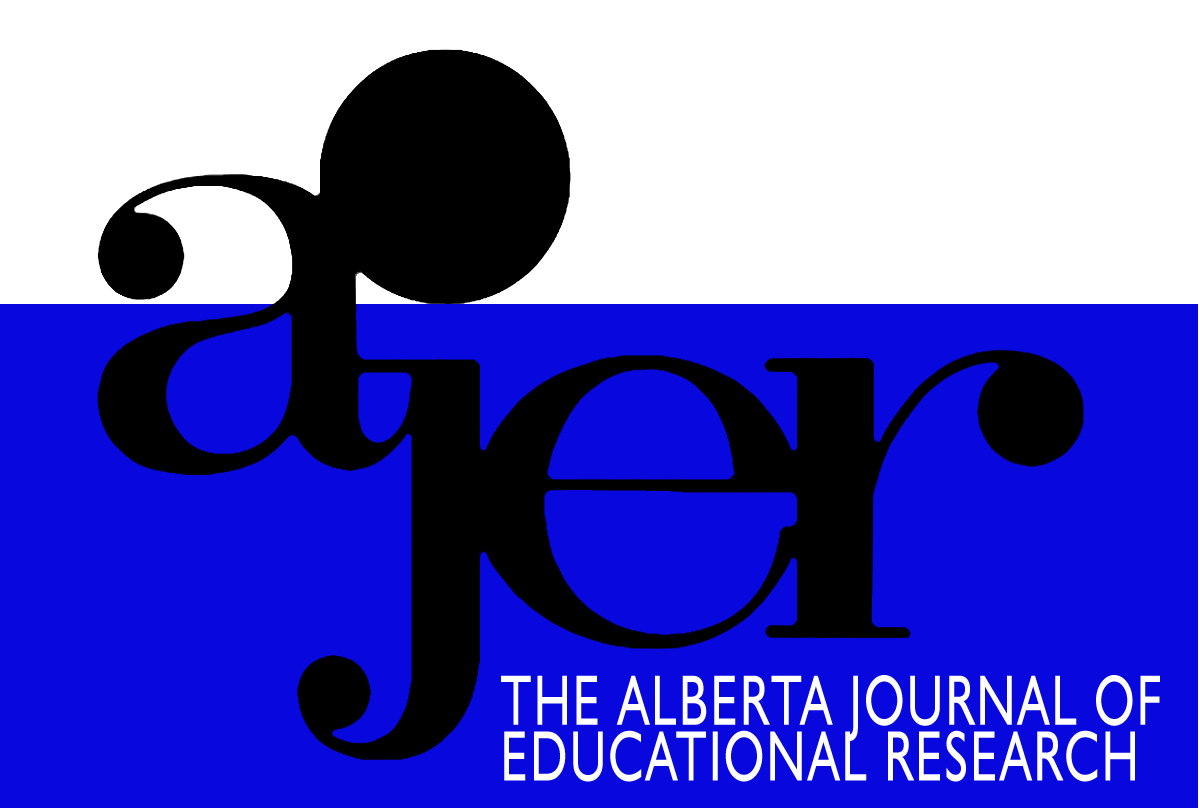Learning With and From Indigenous People: Navigating Transformative Pedagogy and Privilege in Teacher Education
DOI:
https://doi.org/10.55016/ojs/ajer.v66i4.56696Abstract
This case study explores the impact of an English language Arts Secondary methods class that focused on learning with and from Indigenous people. By participating in a number of in-class activities, taking a field trip, and engaging in a critical service-learning project that helped decentre the learner/teacher relationship, many non-Indigenous pre-service teachers were able to transform their understandings. Quantitative and qualitative data illustrate that most pre-service teachers challenged stereotypes, deficit thinking, and expanded their awareness; however, a minority experienced some levels of cognitive dissonance as their own privileged worldviews were challenged. This study explores the hope and challenges of decolonizing education, and a continuing need to imagine otherwise.
Key words: decolonization, pre-service teacher education, social justice, Indigenous curriculum, calls to action
Cette étude de cas porte sur l’impact d’un cours d’anglais en méthodologie au secondaire visant l’apprentissage avec, et de, personnes autochtones. Plusieurs enseignants non-autochtones en formation ont pu transformer leur compréhension en participant à des activités en classe, à une sortie éducative et à un projet d’apprentissage par le service qui a aidé à décentrer le rapport apprenant/enseignant. Les données quantitatives et qualitatives indiquent que la plupart des enseignants en formation ont fait abstraction des stéréotypes, ont surmonté des lacunes de raisonnement et ont amélioré leurs connaissances; toutefois, une minorité d’entre eux ont ressenti une certaine dissonance cognitive face à la remise en question de leurs propres visions du monde privilégiées. Cette étude explore l’espoir et les défis face à la décolonisation de l’éducation et du besoin permanent d’imaginer le monde autrement.
Mots clés : décolonisation, formation préalable des enseignants, justice sociale, curriculum autochtone, Appels à l’action
Downloads
Published
Issue
Section
License
UNIVERSITY OF ALBERTA COPYRIGHT LICENSE AND PUBLICATION AGREEMENT
If accepted, authors will be asked to sign a copyright agreement with the following points:
A. Where there is any inconsistency between this Copyright License and Publication Agreement and any other document or agreement in relation to the same subject matter, the terms of this Agreement shall govern.
B. This document sets out the rights you are granting in relation to publication of your article, book review, or research note entitled (the “Article”) through inclusion in the academic journal titled Alberta Journal of Educational Research (the “Journal”) published through the Faculty of Education, representing the Governors of the University of Alberta (the “Journal Editor”).
C. There will be no payment to you for this publication and grant of rights. In consideration of the agreement to publish the Article in the Journal:
1. You are warranting that:
- the content of the Article is your original work, and its content does not contain any material infringing the copyright of others; or, where the Article is not entirely your original work, you have obtained all necessary permissions in writing to grant the rights you are giving in this agreement;
- the content of the Article does not contain any material that is defamatory of, or violates the privacy rights of, or discloses the confidential information of, any other person;
- the Article has not been published elsewhere in whole or in part, and you will not allow publication of the Article elsewhere without the consent of the Journal Editor;
- the names of all co-authors and contributors to the Article are:
2. You agree to license the copyright in the Article to the Journal Editor, on a worldwide, perpetual, royalty free basis; and to the extent required by the terms of this agreement. You shall retain the right at all times to be acknowledged as the/an author of the Article.
3. You further agree that the Journal Editor has the entitlement to deal with the Article as the Journal Editor sees fit, and including in the following manner;
- The right to print, publish, market, communicate and distribute the Article and the Journal, in this and any subsequent editions, in all media (including electronic media), in all languages, and in all territories, ing the full term of copyright, and including any form of the Article separated from the Journal, such as in a database, abstract, offprint, translation or otherwise, and to authorize third parties to do so;
- The right to register copyright of the Journal;
- The right to edit the Article, to conform to editorial policy as the Journal Editor sees fit.
4. If any co-author or contributor to the Article does not sign this agreement, the Journal Editor reserves the right to refuse to publish the Article.



